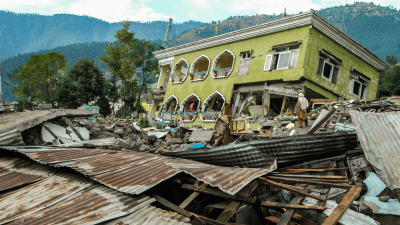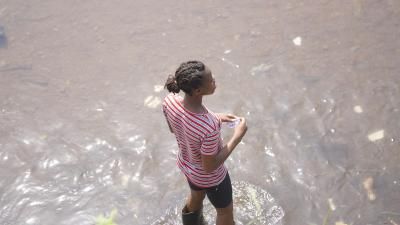
Improving access to redress for workers vulnerable to violence and harassment in South Asia
Experts discuss the factors that make some workers more vulnerable than others to violence and harassment.
This page is approximately a 3 minute read
This page was published on

A new report by a global safety charity has revealed community and societal resilience in Pakistan has been negatively impacted by recent experiences of disaster. The report also highlighted that the number of Pakistanis who have experienced a disaster in the past five years has more than doubled since 2021.
The findings come from the latest edition of the World Risk Poll Resilience Index, produced by Lloyd’s Register Foundation using data gathered by Gallup as part of the Lloyd’s Register Foundation World Risk Poll. The results are detailed in a new report: ‘Resilience in a Changing World.’ This is the third edition of the Poll and comprises data from 147,000 people in 142 countries on how they experience and perceive risk.
According to the data – collected between September and October 2023 – the percentage of people in Pakistan who have experienced a disaster in the past five years saw a significant rise, with more than twice as many people saying they have been affected in 2023 as in 2021 (27% vs 11%). This increase has been driven primarily by the extensive floods which hit the country in 2022, affecting regions containing around 15% of the population.
The new report highlights how these disasters have resulted in Pakistan experiencing a ‘reality check’ – the wiping out of previously high feelings of preparedness and support when a country or community does not fare as well as expected.
Community and societal resilience scores declined sharply in the regions most affected by the floods. In the Sindh province, community and societal resilience declined by eight points, compared to a decline in national community and societal resilience scores of three and four points respectively. These scores declined because people reported losing confidence in the support of the government, community, and infrastructure – at a national level those who said their government cared ‘not at all’ about them and their wellbeing rose from 60% in 2021 to almost three quarters (72%) in 2023. Meanwhile, already low individual and household resilience levels failed to improve in the country, with Pakistan ranking in the bottom 10 globally for both respective resilience scores.
Overall, Pakistan ranked 137 out of 141 globally on the Resilience Index, and joint 40th of 40 lower-middle income countries.
Nancy Hey, Director of Evidence and Insight at Lloyd’s Register Foundation, said: “The World Risk Poll Resilience Index aims to provide insight for policymakers into how global populations perceive risk and how these risks affect their lives. Our findings will help them work with communities to support them in the face of natural hazards and other potential causes of disaster.
“For residents of Pakistan, catastrophic flooding is largely responsible for the doubling in experience of disaster since 2021. This may have led to a ‘reality check’ for residents in terms of how prepared they feel for such events, with community and societal resilience particularly negatively affected. Policymakers should focus on rebuilding and strengthening levels of resilience in the worst affected communities, while also taking steps to improve individual and household of resilience across the country, as the threat from climate change continues to grow.”
In this report we present the second iteration of this Resilience Index, which, for the first time, shows how resilience is changing in the face of today’s challenges.
Read the report